The Saturday Read: Shouting match
Inside: Trump vs Zelensky, Starmer in Washington, Ash Sarkar's culture war, John Banville in search of political art, and an insurgent AfD.
Good morning. Welcome to the Saturday Read, the best of the New Statesman, in print and online this week. This is Finn with Nicholas and George.
That was something. Volodymyr Zelensky’s meeting with Donald Trump and JD Vance yesterday evening could hardly have gone worse for the browbeaten Ukrainian president. It started from a tense place: Trump had spent the preceding week calling Zelensky a “dictator” and suggesting he signed a peace deal with Russia fast, “or he is not going to have a Country left”.
Things went from bad to worse, as the face-to-face in the Oval Office descended into a shouting match. Zelensky tried to explain that Putin was an untrustworthy aggressor. An impetuous Vance hit back: “Do you think it’s respectful to come to the Oval Office of the United Sates of America and attack the administration that is trying to prevent the destruction of your country?” Trump and the Ukrainian leader spoke over each other. It’s painful viewing - I think probably important to watch anyway.
Now Zelensky has left the White House, no deal signed. Better attempts at diplomacy have certainly been made in the past. But it is clear, in any case, that Europe cannot rely on this capricious US administration. We have Katie Stallard and Freddie Hayward in Washington to navigate this serious global restructuring and to ask the important question: what is the future of European security under Trump’s new reality?
As ever, thanks for reading and have a great weekend.
1—“How long can Britain subsist?”
The British press were rather trigger-happy with their conclusions on Thursday evening after the Trump/Starmer meeting. Diplomatic masterclass! They say. Freddie was there and is more sceptical. That was no triumph, but a display of British weakness. FMcR
Starmer’s failure to get this guarantee suggests the British establishment was never fully serious about a proper peacekeeping mission in Ukraine. The reality is that Britain’s armed forces have been built to serve as a single spoke of the US’s vast military wheel. Without the Americans, there is next to no chance of Britain deploying a force capable of deterring Russia’s rapacious war machine. As the Liberal Democrat MP Mike Martin has pointed out, any mission in Ukraine would uproot British forces deterring Russia in places such as the Baltics. Hard power matters more than soft words. In the Oval Office, Trump mocked the Prime Minister with the jibe: “Could you take on Russia by yourselves?” To which Starmer mustered an awkward laugh, not a battle-ready army.
2—“A firewall reduced to ashes”
I have been loving Jason Cowley’s weekly notebook column These Times. He looks at the AfD’s rise in Germany and the collapse of the mainstream centre-left across the West. Pursuit of green growth and net zero was not just unpopular there, but the politics of a “dead era”. A lesson in that, maybe. FMcR
On a visit to Berlin in February 2023, I went to see Wolfgang Schmidt, Scholz’s long-time confidant and de facto chief of staff, in his grand office at the Chancellery. As we talked late into the night, my eye was engaged by the large Gerhard Richter paintings on the walls behind him. I listened as he explained why the centre left was not in long-term decline and why Scholz, who trained as a lawyer, was the ideal politician for these times. The line I kept hearing during my visit was that he was “Angela Merkel but with a plan”. I was not convinced. During the 2017 election campaign, after which he became Merkel’s deputy in the grand coalition, Scholz had rejected the Nato imperative to spend at least 2 per cent of national income on defence as “nonsensical and lacking parliamentary legitimacy”. As Wolfgang Münchau wrote in his recent book Kaput: The End of the German Miracle, the Merkel-Scholz “German model constituted a denial of geopolitics in the age of geopolitics”. Putin’s full-scale invasion of Ukraine destroyed what remained of the German model, as well as the popular liberal delusion that “Germany does it better”.
3—“Exciting and provocative things to say”
What a joy to have the great John Banville in our books pages, reviewing an essay collection from the as-great art critic TJ Clarke. Those Passions asks whether paintings can amend the course of politics. I’m not sure. But I am glad to read Banville on Lowry, an artist I had otherwise considered rather leaden. FMcR
The question that presents itself, however, is what would be left of the left if it were to abandon its teleological mission, if it ceased to be a religion – and anyone who doubts that communism is a messianic movement should read John Gray’s The Immortalization Commission, on how the Bolsheviks planned not only to embalm Lenin’s corpse but to ensure that one day the man himself could be brought back to life. Clark proposes, startlingly, that “the question of capitalism… has to be bracketed. It cannot be made political. The left should turn its attention to what can.” If that is not heresy, what is?
4—“A national disease”
The Mayor of New York City commands a conurbation larger than many European states. And, Lee Siegel writes, his refusal to step down ever after a slew of charges for fraud and accepting bribes make him symptomatic of a national political class: one that has forgotten how to feel shame. NH
In super-individualist America, the question of right and wrong – sometimes puerile, often profound – has devolved into whatever someone can get away with. Trump has conquered the executive and legislative branches of government, and is either dissolving or appropriating the bureaucratic state. All that remains is for him to disempower the judicial branch by refusing to obey a ruling from the Supreme Court. Having stoked Eric Adams into a brazenness to match his own, Trump will now be watching carefully as his canary flutters about in the coal mine of a disintegrating constitutional order.
5—“Would have been radical in 2017”
I met Ash Sarkar to talk about her new book Minority Rule: Adventures in the Culture War. I left with the overwhelming impression that she is an effective conveyor of some pretty passé ideas. This does not mean she isn’t useful to the left. FMcR
She is also a memetic thinker who speaks in internet vernacular. She tells me, in reference to a 2023 meme, that she thinks “about the Roman empire every day”; that her obsession with the Napoleonic Wars ranks among her “boy-coded” traits; that she is unfairly characterised as a “tofu-eating soy boy”. (The book is full of these asides too: “spoiler alert”, “come off it”, “good luck pal”.) At times, talking to Sarkar feels like talking to X.
To enjoy our latest analysis of politics, news and events, in addition to world-class literary and cultural reviews, click here to subscribe to the New Statesman. You'll enjoy all of the New Statesman's online content, ad-free podcasts and invitations to NS events.
You may have noticed that we sent you two pieces early this week: our cover story written by Andrew and our exclusive interview with Steve Bannon. Andrew gets into the weeds and investigates the future of the special relationship in Trump’s world. Meanwhile, Freddie spent four days hanging out with Maga architect Steve Bannon. Here is the man responsible for so much of the intellectual scaffolding of the American right. What does he want?
The University of Plymouth is pioneering new technologies for people in rural and isolated communities to experience and access real-world places they would not usually be able to. These services have been shown to address some of the greatest health challenges of our time. Click here to learn about the ICONIC project.
6—“Angry but not pessimistic”
The Ukrainian writer Andrey Kurkov dials in from Kyiv this week. Every morning he looks through reports of Russian drones that have attacked Ukrainian infrastructure the day before. He is still not despairing about his country’s future. FMcR
We all need a unit of measurement to calculate the level of surrealism in social and political life. I suggest the “Kafka” and the “Orwell”. Absurdity that most people can adapt to – like that experienced in ordinary Soviet life – could be measured in Kafkas, while Orwells could be used to measure social surrealism that drives people crazy, provoking irreversible processes in the brain. For example, from the point of view of normality, on a ten-point scale, the socio-political situation in Ukraine today is equal to six or seven Kafkas, while in Europe, the level is two or three Kafkas.
7—“Fear, lust, paranoia”
And now, to Berlin. Where Tanjil Rashid reports. Even as brownshirts marched down the streets of the city, cabaret played in the bars below them. And, as the far-right surged across Germany, the world’s greatest filmmakers gathered there for the 75th Berlinale film festival. NH
I admit to feeling more decadent than I usually do at the end of one of these jamborees. The Berlinale closed to a stabbing by a Syrian refugee at the Holocaust memorial and the neo-Nazi-linked Alternative for Germany securing its best showing in a federal election – second place with a fifth of the vote – the agenda for which it set. In such a fissiparous context, even the most politically committed films, despite their makers’ pretensions, merely offer escapism; they will not change the world. We’ve all simply been dreaming away in enchanted dark rooms, snowed off from a reality we now awaken to with dismay.
8—“King Arthur”
When Arthur Scargill fell, several other things fell with him: the trade union movement, the militant working class, the mining communities he had set out to protect. Forty years after he surrendered to Margaret Thatcher, Jacob Furedi goes in search of the king in exile – and the people he left behind. NH
What of Scargill today? In 2024, he stepped down from the leadership of the Socialist Labour Party, and now makes only very rare public appearances. He attended just a handful of the events commemorating the 40th anniversary of the start of the strike this time last year; at one in Doncaster, he was photographed alongside George Galloway, wearing a red tie and Free Palestine badge. “To be honest, he’s pretty reclusive,” says a long-time ally. “I saw him the other week in Asda,” adds one of the bingo ladies.
9—“In search of a big picture”
In a secular world, do we really need to believe in anything? (Answers on a postcard, please). Lamorna Ash reviews two new books, and tries to work out why so many continue so stubbornly to believe in things unproven by fact. FMcR
One interesting point of confluence between the two books is their reference to the American philosopher Thomas Nagel’s 1978 essay “What Is It Like to Be a Bat?”. Nagel uses the example of a bat to illustrate that there is something particular and irreducible about the consciousness of each living organism. This essence, Nagel says, can never be reached by an entirely objective approach: even to imagine what it is to be a bat is actually to imagine what it would be like for a human to be a bat. Millar’s Nagel epiphany comes during an ayahuasca ceremony. During her trip she hallucinates herself into the body of a chicken, or at least “in a state of bizarre hyper-empathy with a chicken”, which allows her to recognise that “each animal is its own locus of consciousness”. But we can never truly escape our own subjectivity in order to know the experience of another consciousness.
10—“A precarious moment”
With thanks to Rajan Menon for this level-headed essay on the fragile ceasefire deal between Hamas and Israel. There are tough choices ahead for Netanyahu, and he faces an unstable coalition at home. But Hamas are not exactly in a position of strength. Here’s what you need to know. FMcR
Hamas has delighted in demonstrating that it remained unvanquished despite the ferocity of the IDF’s siege and the deaths of some of the movement’s senior leaders, such as Yahya Sinwar and Mohammed Deif. Hamas has also already secured the release of more than 33 times as many Palestinians as the hostages it freed. Yet Hamas will have to decide how far it can push Israel without blowing up the ceasefire altogether. It may bet that Netanyahu won’t defenestrate it as long as dozens of Israeli hostages remain trapped in Gaza, but it can’t be certain that he won’t restart the war to achieve his oft-stated goal of annihilating Hamas, even if that requires sacrificing some hostages still in Gaza.
Our policy correspondent and resident red squirrel enthusiast Megan Kenyon has compiled her top ten for the SR this week.
Megan’s Best of the Rest
Gary Kasparov: The Putinisation of America
Keir Starmer to carry out largest cut to UK overseas aid in history
Aziz Huq: Executive hyperactivity
Janan Ganesh: The Tories discover that Britain is located in Europe
Bethany Elliott: Psychopaths ComiCon
Alan Jacobs: All the distant mirrors
Poppy Sowerby: Andrea Dworkin was right about men
Susan Morrison: Inside the SNL audition room
Previously undiscovered Dionysus frescoes unveiled in Pompeii
It feels like the wild west – I’ve lost 4,500 sheep to thieves on Dartmoor
And with that…
For a piece I hope to share with you soon, this week I read a novel partially about the London rental market. Brooding on it this week in a series of colleague confabulations, I came to notice that, as critic James Wood once put it, “a genre is hardening”.
A few years ago, there was Three Rooms, Jo Hamya’s book-length disquisition on Virginia Woolf’s A Room of One’s Own and the capacity for creativity without housing security. Then last week, drifting through the ever-enchanting Charing Cross Foyles on a cold winter eve, I espied a pyramid stack of a new tome, Goodlord by Ella Frears, touted as the definite epic poem of the contemporary housing market.
Having engaged my building managers this winter in a noisy battle over the replacement – or not – of a banshee boiler pipe, I scanned these books with my sympathies foredetermined. I even considered writing my own (A Room Without a View? Their Eyes Were Watching Mould? Low Expectations?). Indeed it is actually quite inspiring to see the material troubles of this time beginning to emerge as art.
The New Statesman is home to the finest writing on politics, culture and ideas. To stay up to date, subscribe using the link above.
— Finn, Nicholas, and George.





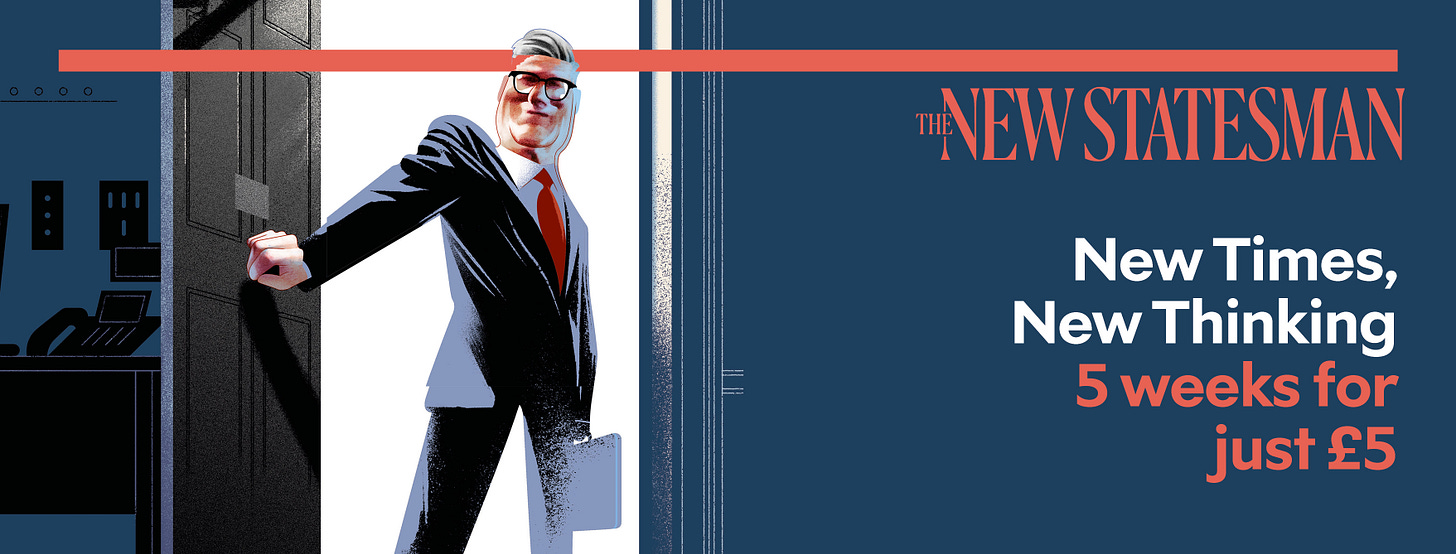
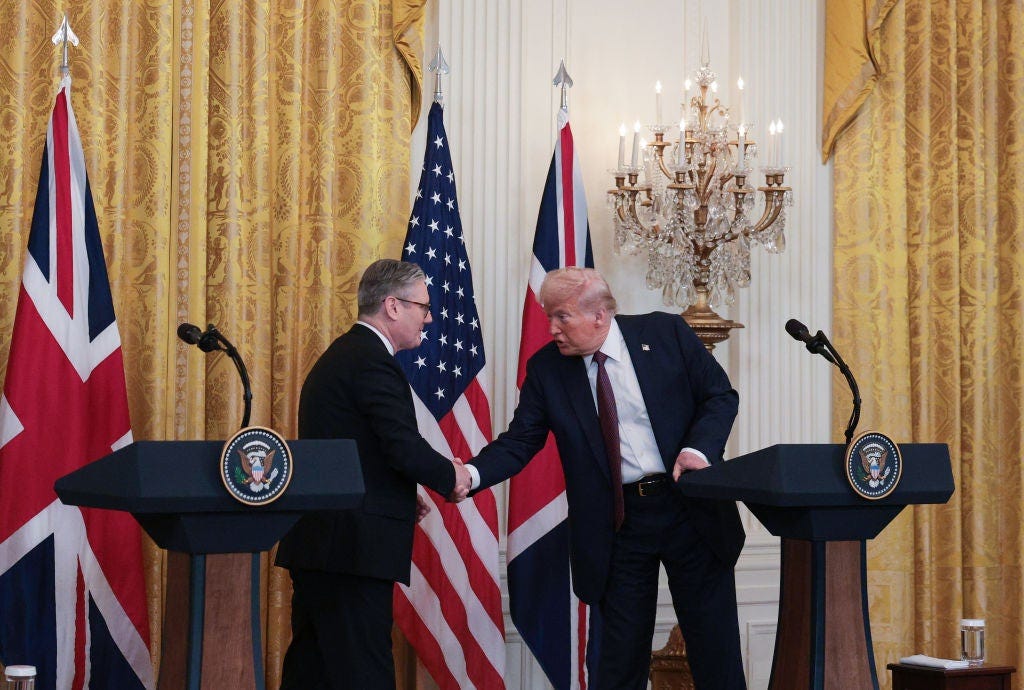

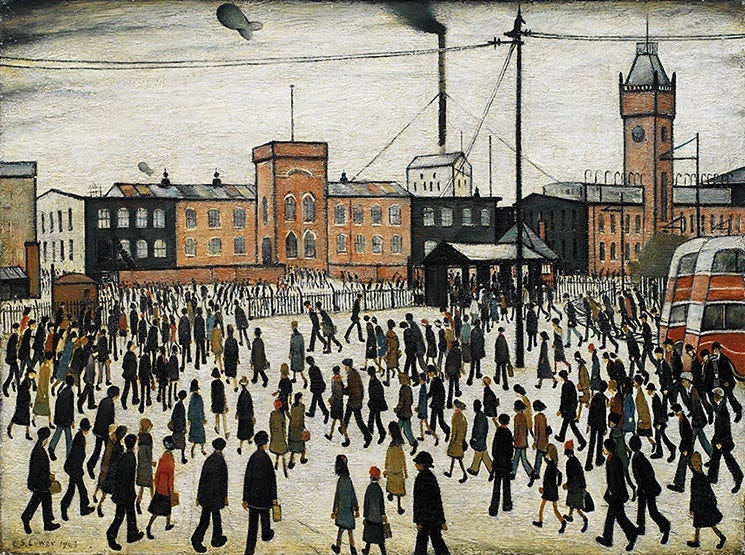
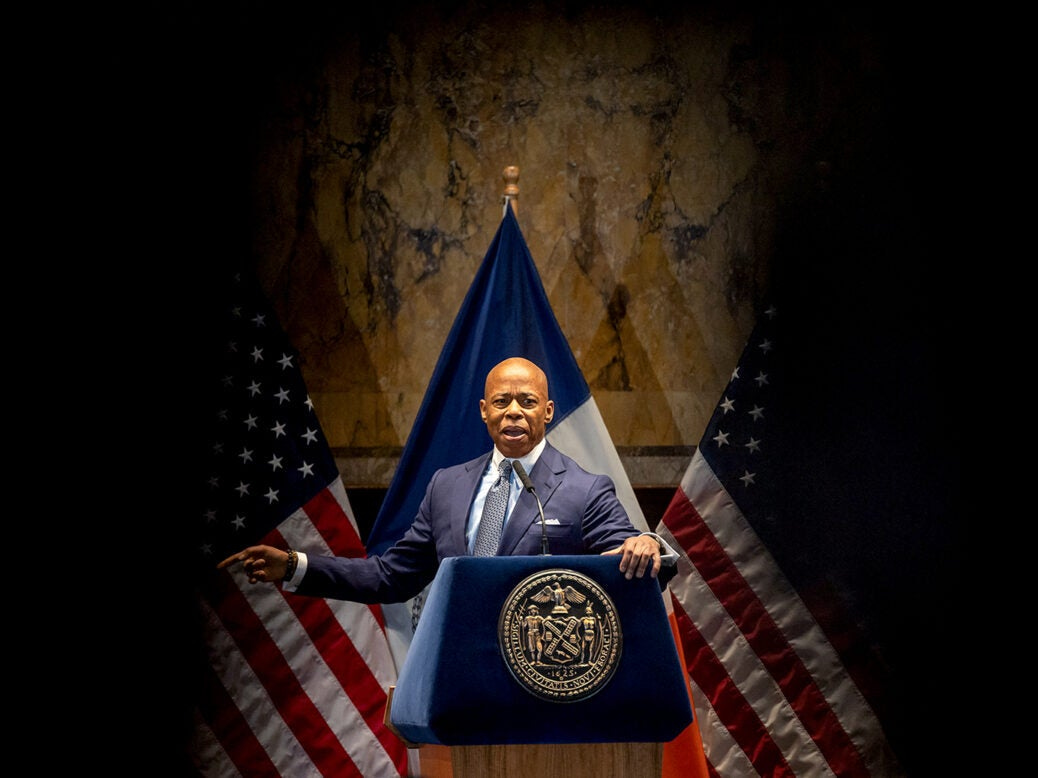



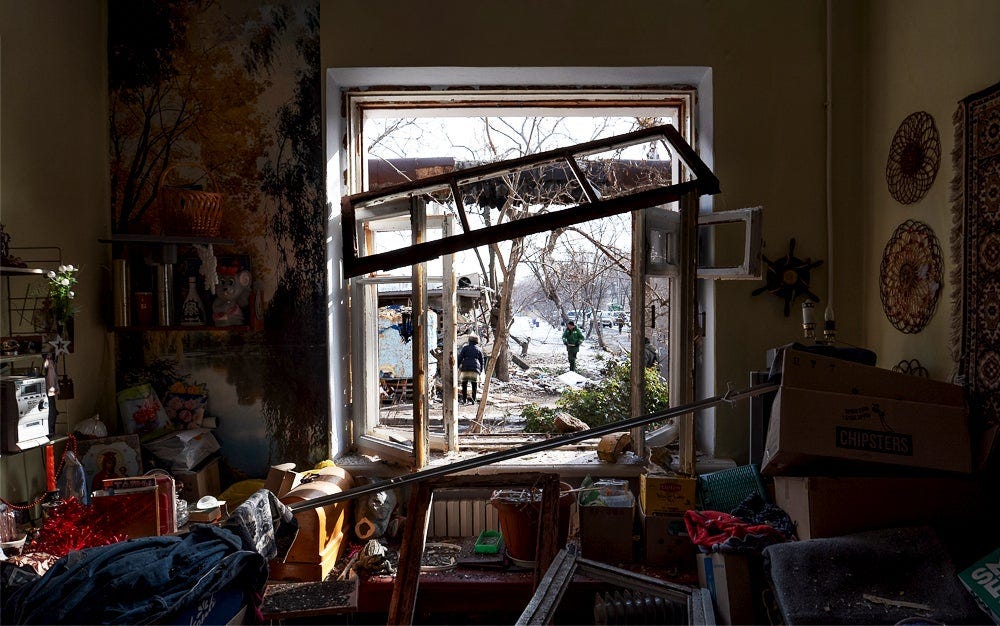





To George: Alternative title for your book Room with a Eww: 'Pipe Dreams'.
A really insightful take on the way conversations can turn into shouting matches. The exploration of how we communicate—and how we can do it better—is so important in today’s world. Great read!